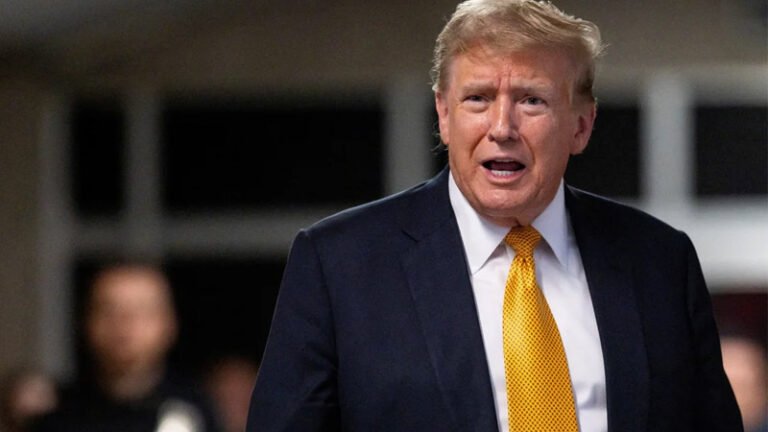Former President Donald Trump is spending the hours leading up to Tuesday night’s vice-presidential debate on the campaign trail in Wisconsin, making stops in pivotal Democratic strongholds that are essential to Democrat Kamala Harris’ strategy for securing the battleground state. Trump’s visit marks a strategic effort to bolster his appeal in regions critical to winning Wisconsin, a state that played a decisive role in recent presidential elections. report from AP News.
Trump is scheduled to begin his day in Waunakee, a suburb of Madison located in Dane County, which is considered the heart of Democratic support in Wisconsin. This will be Trump’s first time campaigning in Dane County, a region he did not visit during his presidency. Dane County, home to the state capital and the University of Wisconsin, is a rapidly growing area driven by healthcare and tech industry jobs. Despite being a Democratic stronghold, it also has the third-largest number of Republican voters in the state.
Dane County’s significance in the upcoming election cannot be overstated. The county’s population surged by about 30,000 between 2016 and 2020 and has grown by another 13,000 according to the latest U.S. Census Bureau estimates. This growth poses a challenge for Republicans as President Joe Biden won the county decisively in 2020, receiving 75% of the vote and beating Trump by 181,000 votes, contributing to his narrow statewide victory of fewer than 21,000 votes.
Republican efforts in the county remain crucial. Dane County Republican Party Chairman Brandon Maly emphasized the importance of Trump’s visit, writing on X (formerly Twitter), “President Trump’s appearance will be a big shot in the arm for demoralized conservatives here.” Maly has indicated that Trump needs to secure at least 23% of the vote in Dane County to have a realistic shot at winning the state.
Waunakee, where Trump will speak at Dane Manufacturing, a metal fabrication company with a history of hosting Republican candidates, is slightly more favorable to Republicans than Dane County as a whole. In the 2020 election, Trump garnered 36% of the vote in Waunakee, compared to less than 23% countywide.
Later on Tuesday, Trump will head to Milwaukee, the state’s largest city, which is home to a high concentration of Democratic voters and the second-largest group of Republicans in Wisconsin. His event will be held at Discovery World, a science and technology museum located on the shores of Lake Michigan. Milwaukee’s conservative suburbs will also be in Trump’s focus as they are areas where his support has softened but where he must perform well to remain competitive in the state.
Trump’s campaign appearances come just ahead of Tuesday night’s vice-presidential debate between his running mate, JD Vance, a senator from Ohio, and Democratic vice-presidential nominee Tim Walz, the governor of Minnesota. Trump is expected to focus his remarks on the economy, a core issue of his platform, and highlight his criticisms of Kamala Harris, who has campaigned vigorously in Wisconsin. During a rally in western Wisconsin over the weekend, Trump blamed Harris for crimes committed by individuals in the country illegally, reinforcing his tough stance on immigration.
Dane County, with its growing population and strong voter turnout, remains a critical battleground in Wisconsin politics. Nearly 90% of registered voters in the county cast a ballot in the 2020 election, reflecting the high level of civic engagement in the region. Democratic candidates, including Harris, have made significant efforts to energize the base, with Harris drawing over 10,000 people to a rally in Madison in late September. told by ABC News.
As the 2024 election cycle heats up, Trump’s visits to these key areas of Wisconsin demonstrate the importance of the state in determining the outcome of the race. While Trump faces challenges in Democratic strongholds like Dane County, his campaign is focused on maintaining support in more conservative pockets of the state while addressing issues that resonate with voters across party lines.



